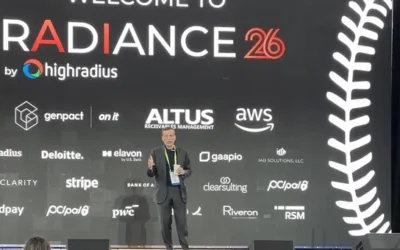The Trial Balance is CFO.com’s weekly preview of stories, stats and events to help you prepare.
Part 1 — Quarterly earnings under fire, again
President Donald Trump revived debate over how often public companies should report results, suggesting Monday on Truth Social that firms move from quarterly to semiannual disclosures. He argued that the shift would cut costs and allow executives to focus more on long-term priorities.
The idea isn’t new. Trump floated it during his first term, and leaders like Warren Buffett and Jamie Dimon have criticized quarterly reporting and guidance for fueling short-termism. One group known as the Long-Term Stock Exchange even said it plans to formally petition the Securities and Exchange Commission to remove the requirement for quarterly disclosures, the Wall Street Journal recently reported.
The current system has been in place since 1970, when the SEC began requiring companies to file four times a year. Supporters say that cadence, combined with GAAP, underpins one of the most transparent reporting environments in the world.
Other markets take different approaches. Companies in Europe and the U.K. are required to disclose information twice a year, with the option to provide quarterly updates. In Hong Kong, firms report every six months, while Chinese regulators require quarterly, semiannual and annual filings across the rest of the country. Earlier this year, Norway’s sovereign wealth fund backed a semiannual model to encourage longer-term thinking.
Skeptics argue that fewer reports won’t automatically reduce pressure. Investor advocates note that boards and incentive structures often drive short-term focus more than disclosure rules. For CFOs, the real question is how markets would react. Even if regulations change, many investors are likely to expect quarterly transparency.
A shift to fewer filings would ease some compliance costs and reduce the frequency of earnings calls, but it could also raise volatility by widening information gaps. For finance chiefs, the challenge is balancing efficiency with the investor trust that quarterly reporting supposedly helps sustain.
Part 2 — This week
Here’s a list of important market events slated for the week ahead.
Monday, Sept. 15
Tuesday, Sept. 16
- U.S. retail sales, Aug.
- Import price index, Aug.
- Industrial production, Aug.
- Capacity utilization, Aug.
- Business inventories, July
- Home builder confidence index, Sept.
Wednesday, Sept. 17
- Housing starts, Aug.
- Building permits, Aug.
- FOMC interest-rate decision
- Fed Chair Jerome Powell press conference
Thursday, Sept. 18
- Initial jobless claims, week ending Sept. 13
- Philadelphia Fed manufacturing survey, Sept.
Friday, Sept. 19 — None scheduled.
Part 3 — Weekly listen: Michael Vigario of ACT Group North America on Exit with Dan Bowyer
On Next Exit with Dan Bowyer, ACT Group North America CFO Michael Vigario recalled his leap from Barclays to a six-person fintech in a Brooklyn, New York, apartment. “I ring the bell, finally go upstairs, and they go to me, ‘oh, you know, where’s your computer? … We’ll get to the point where we buy computers, but we haven’t raised enough yet. So, now you still bring your own,’” he said. “Talking about culture shock, I mean, it went from, you know, screens everywhere [to] … where’s your computer, why didn’t you bring your own?”
Asked how to build a world-class finance function, Vigario said, “The core of the business is keeping your numbers correct. You’re not capital raising without accurate numbers.” His sequence begins with accounting, then operations, then FP&A: “You need to be able to look into the future. You need to create models.” Hiring, he added, should focus on “curiosity and discipline … people who want to work hard are not afraid to roll up their sleeves.”
He also compared the venture and private equity worlds. At his former employer CommonBond, “we focused on unit economics and positioning for the next round, knowing that if you’re in a cash burn position, that next round will have to come.” At ACT, backed by private equity, “it’s been more diligence focused, more reporting focused … focusing on cash conversion, on client churn, on margin per activity or per product.” What sets successful PE CFOs apart, Vigario said, is “technical control and communication … the ability to execute and communicate with confidence.”





